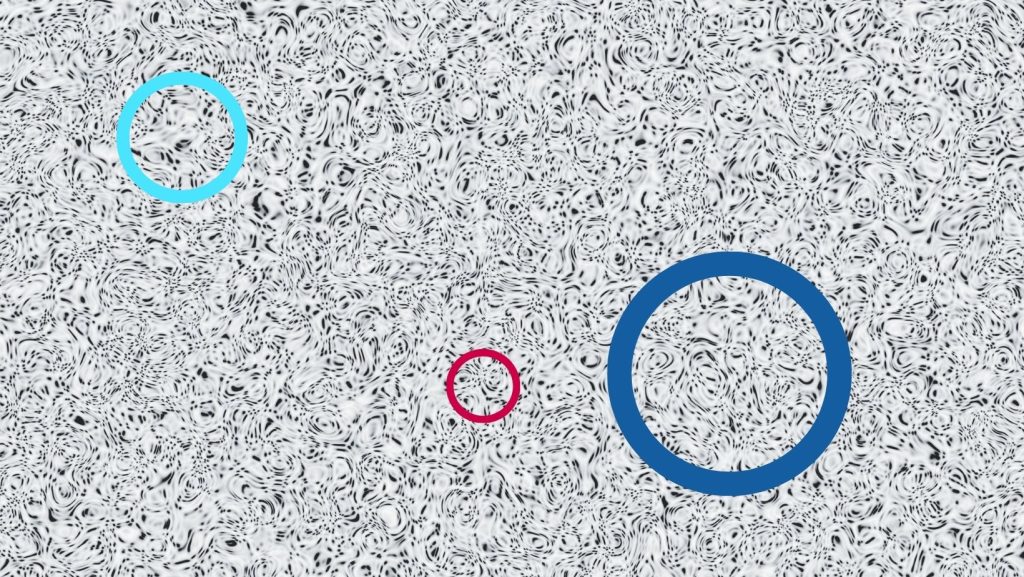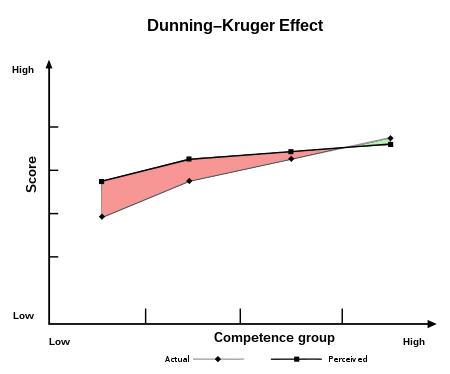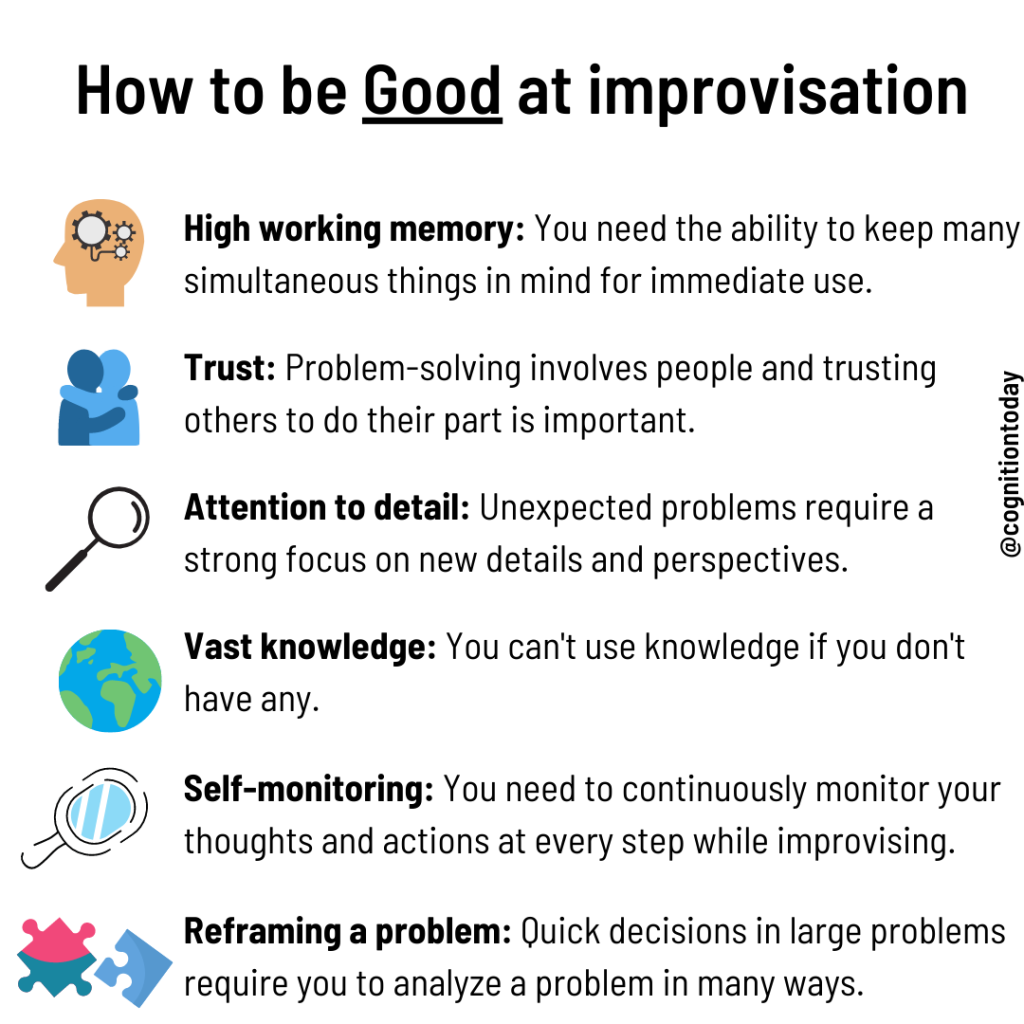If you are here, you are probably an expert at something or trying to be one. You may have heard that it takes 10,000 hours to become an expert, but that number is largely meaningless. As we will see, expertise doesn’t develop by practicing 1 single skill for a decade. It emerges from 3 specific cognitive skills governing your perception, problem-solving capacity, and response selection.
Expertise is hard to define. Many use heuristics or indirect indicators to infer expertise: they are at top of their field with qualifications, are recognized by others as an expert, have demonstrable skills, are top-rated, are well branded, charge a lot for their service, are efficient at the craft, etc. But what are the defining traits of an expert? I will attempt to simplify the core factors that make someone an expert in their respective field.
- Do you really need 10,000 hours to become an expert?
- Can you “practice” your way to becoming an expert?
- 3 core abilities of a true expert in any domain
- Difference between an expert, a novice, and an intermediate professional
- How can you be an expert in real life?
- 2 major problems stopping you from being an expert
- Sources
Do you really need 10,000 hours to become an expert?
A very sticky idea that still makes the rounds in self-help and business circles is that it takes 10,000 hours of practice to become an expert in complex skills. The idea was popularized by the best-selling author Malcolm Gladwell in his uber-popular book “Outliers: The Story of Success[1]“. Gladwell built his “10,000 hours” rule on Ericsson’s research finding[2] that 20-year-old promising violin learners in a music academy in Berlin had about 10,000 hours of practice, started at an early age, and had about 10 years of practice. This average was extrapolated to estimate that the Beatles had 10,000 hours of music performance and Bill Gates had 10,000 hours of coding experience before becoming rockstars in their respective fields.
However, 10,000 is a rule of thumb that is hard to prove or disprove considering the millions of simple and complex skills billions of people can have. On top of that, individual differences like starting age, varying learning capacities, and resources to practice and explore affect real-world skill development.
The “10,000 hours to become an expert” rule is logically flawed because:
- It doesn’t consider differences in learning capacity and the realistic capacity to practice.
- It doesn’t consider how many people practiced something for 10,000 hours and still failed to get recognized as experts (the survivorship bias).
- It doesn’t consider skill complexity.
- It assumes that quantity of practice is the “active ingredient” for expertise.
Effectively, expertise isn’t a function of skill or time.
Can you “practice” your way to becoming an expert?
It takes 5,000 to 10,000 work hours to complete a Ph.D. after 2,000 to 3,000 hours in a master’s program. Medical school might take many more hours of practice considering clinical practice hours after completing multiple degrees. 5 years of experience in a specific job is 10,000 hours. How many of those hours are spent in refining a specific skill varies. And, it might not matter much. Research suggests[3] that just about 18% of changes in performance can be attributed to deliberate practice in sports. Another study[4], a meta-analysis looking at expertise in sports, education, music, professions, and games, suggests deliberate practice explains only a small portion of expertise: 1% to 26%
We found that deliberate practice explained 26% of the variance in performance for games, 21% for music, 18% for sports, 4% for education, and less than 1% for professions. We conclude that deliberate practice is important, but not as important as has been argued.
Macnamara BN, Hambrick DZ, Oswald FL (2014)[5]
3 core abilities of a true expert in any domain
The ideas presented below are extrapolated from James Shanteau’s research review paper[6]. Do check it out.
1. Experts separate the signal from the noise
Experts can focus on the important details (signal) and ignore the remaining details that are irrelevant (noise). The signal and noise can be separated based on the causes/contributing factors for a problem. Expert professionals understand proximal, distal, and noisy causes of a problem and know which ones to focus on.
- Proximal causes: The immediate mechanisms that lead to a problem – e.g., poor diet and exercise causing immediate weight gain.
- Distal causes: The far away mechanisms that lead to a problem – e.g., the role of genetics and average lifestyle movement that leads to lethargy and a pre-disposition to metabolize slowly.
- Noisy causes: Relevant factors that add to the problem but are unclear, indirect, insignificant, or hard to control – e.g., negative thinking and cheat days for obesity treatment.
Those good at their craft know what to focus on and where to maximize effort. An expert chef would know which spices contribute most to the taste. They also know that slight differences in other things like the amount of water or sugar won’t change the taste as much, for example. They would also know different thresholds for when humans detect changes. For example, a mobile-tech expert would know that a 10gm difference in a phone’s weight won’t feel different to the hand but know that the form factor of a phone would affect how it feels in the hand. A consumer might think 10gms fewer is objectively better, but an expert would know 10gms is a “noisy” detail and the “signal” lies in how the phone feels in the hand with proper weight distribution considering the top-heavy camera bulk.
Similarly, an expert engineer would know that the choice of algorithm might affect the overall speed of a program far more than other factors. Therefore, an expert might focus on just the algorithm (signal), while a non-expert might focus on other factors like UX (noise) to make it feel faster. While both are important, an expert will know the bottlenecks better.

2. Experts are sensitive to nuances
Experts identify subtle differences. Like seeing more shades of blue than the average person. But they also know when nuances don’t matter. They would know that a minor adjustment in color may not make any practical difference to the final product. Some experts have superior pattern recognition skills that allow them to see patterns when most others see none. An expert musician would instantly differentiate between chord progressions and know what’s uniquely adding to the “sound” of a song. Medical experts can identify symptom patterns and recognize a particular disease or disorder. Without knowing enough about a variety of diseases and how they manifest in the clinic, it would be hard to differentiate between even a common cold and covid-19. These nuances build a context or a pattern that has more meaning to someone who has more knowledge. Without relevant knowledge, it would be hard to identify the context or pattern – a clear sign of not being an expert.
3. Experts are reliable and consistent
An expert can consistently perform or solve a particular class of problems. An expert statistician would be able to reliably crunch data of a particular type. An expert, particularly an expert who is trusted by many, has a proven record. An expert basketball player will shoot baskets most of the time. An expert therapist will have a wide range of clients who are happy with the service. An expert electrician can solve wiring problems most of the time. An expert musician can play a song correctly any number of times. In fact, not being reliable is a sign of not being an expert. It may be because the person is still learning and mastering a skill, or lacks other relevant factors like confidence and feedback that help to improve and stay on track.
Difference between an expert, a novice, and an intermediate professional
Apart from actual ability and performance, the difference between all 3 levels of professionals is self-assessment. The Dunning-Kruger graph[7] describes a relationship between confidence about expertise/performance and actual ability. The original experiment found a change in the gap between performance and perceived performance as skills increased. As a novice, the perceived performance level is much higher than the actual performance. The performance is still overestimated as an intermediate but by a smaller margin. As an expert, performance is slightly under-estimated but is quite accurate. The insight from this graph called the Dunning-Kruger effect is that novices are least accurate in estimating their actual performance, and experts are most accurate.
The Dunning-Kruger effect is popularly described as a personal bias where novices are overconfident because they are ignorant about their ignorance, and experts are reasonably confident because they accurately know their limits. The explanation for why this occurs is usually straightforward in most cases. Beginners don’t know what they don’t know because they have limited knowledge, they have limited understanding of nuances that highlight potential “unknowns” and deeper layers of a problem, and they have limited experience with simple things where they feel their performance is high. So they use their awareness of their performance on easy tasks without knowing what other tasks they could fail at as a heuristic to judge their competence and derive confidence.

How can you be an expert in real life?
To achieve what I’ve stated above, I see 3 primary broad approaches to get there.
1. Learn and expose yourself to a high amount of variety in your domain.
Learn different perspectives, problems, and solutions. Use trial and error. The goal is to be an efficient learner so you can adapt to a large variety of contexts and problems. Learning through multiple examples and methods creates a template of problem-solving which can be applied in many new cases.
- Variety breeds creativity and counters reliance on functional fixedness. By exposing yourself to many different problems, you build mental flexibility to mix and match ideas to come up with novel ideas. For example, you may see a cup as a container for water or liquids, but you can use a cup to amplify the volume of your phone. This idea can only emerge from observing/learning from others or understanding the basics of sound – in short, exposure to variety.
- Variety helps you identify different nuances that are dominant in different contexts, so it improves your signal vs. noise detection radar. For example, by learning a lot of words and talking with people from unique backgrounds, you can identify the subtle contexts for specific words. Those can help you differentiate between flirty behavior vs. non-flirty behavior or passive-aggressive remarks vs. sincere but unclear remarks. This kind of variety in learning a language can help you become an expert communicator.
- Variety also helps people form concepts, differentiate concepts, and cluster ideas together. For example, without exposure to a variety of things that fly, it is hard to distinguish between birds and airplanes. And the more you learn about different shapes and speeds for flying, the easier it is to differentiate within and between flying objects like a bird, a plane, and superman.
2. Identify the key unique markers and differentiators of a problem
Instead of seeing everything as a hammer or nail, learn about all sorts of tools and methods. Each problem has its unique set of features. For example, if you are trying to fix a leak, there are unique considerations like water pressure, size of the fittings, quality of water, etc. These “markers” help an expert choose a solution. But what if you know just one configuration of features? You may not be able to fix a variety of leaks because you don’t know how to tweak a templated solution to suit unique leaks. Every problem can be seen for its details and holistic nature. Paying attention to all and making a mental note of what’s relevant is important to build expert intuition. To choose the best tools and problem-solving methods, conceptual understanding related to the problem space must show 2 properties: Specificity and Sensitivity.
Specificity (true negatives): When you do not assign an example to a category it should not belong to, your conceptual understanding is 100% specific.
Sensitivity (true positives): When you correctly assign an example to a category, you are 100% sensitive to understanding the concept.
If you correctly differentiate between a car and a bike 100% of the time, your conceptual understanding is 100% specific and 100% sensitive because you pass 4 judgments: A car is not a bike and a bike is not a car (specificity), and a car belongs to a car concept and a bike belongs to a bike concept (sensitivity). Sensitivity and specificity are important to becoming an expert in an area. For all concepts important in a domain, A=/=B, A=/=C, A=/=D, etc., is as important as saying A is A. For example, a doctor would be able to differentiate many diseases and use tools to correctly identify them. They identify symptoms as a cold, covid, or allergies. Sometimes, there is a misdiagnosis where they fail to identify an allergy as an allergy. Their expertise depends a lot on the correct identification of a problem and choosing a treatment that belongs to that disease.
If an expert is not specific or sensitive, it means one of 4 things.
- Your conceptual understanding is weak
- The concept itself is poorly defined
- The concept requires contextual information
- You discovered a new pattern between the example and category
3. Learn advanced skills to such a level that they are done without thinking or focusing much
Trust the habit and use your attention to identify new things. Here’s how to build a strong habit. Neuroimaging studies[8] suggest that the cortical regions which govern executive functions (decision-making, attention, etc.) are less used as one is more “practiced” or “experienced” in a task. This suggests that novices tend to rely on executive functions for new tasks meaning they have to think and concentrate a lot. However, as practice increases, the brain depends less on those cortical networks/executive functions for those tasks – experts have to think and analyze lesser than novices. In a sense, experts tend to have a templated approach to problem-solving.
So, to be an expert, you may need to have 2 things:
- A vast array of templated problem-solution pairs that you can readily use without thinking. These become the set of responses you have for a problem that needs your expertise.
- Cognitive flexibility and working knowledge to improvise and adapt to new problems. This article outlines the art of improvisation in more detail.
Expert-level improvisation requires 6 cognitive abilities:

The road isn’t easy and there are 2 problems in your journey toward expertise.
2 major problems stopping you from being an expert
1. Overthinking while performing your primary skills.
Overthinking interferences with the “expert” habit/skill and automatic level of intuitive understanding you’ve developed over the years. If you are an expert chef, you’d have a gutfeel about cooking, and overanalyzing might interfere and warp your judgment. Similarly, an expert botanist might know what to look for to correctly identify a plant but might make an error if they overanalyze a feature like a stem’s girth. They may then incorrectly recognize the plant’s species because they stopped focusing on the more contextually relevant features of the plant – like the season in which it grows, leaves, flowers, and ecosystem.
Takeaway: After you purposefully learn and develop pseudo-expertise, maintain your expertise by not overthinking.
2. A familiar solution blocks the possibility of creating/learning a new, improved solution.
This is the Einstellung effect. Experts aren’t immune to it; and sometimes, worse off than beginners in finding creative solutions. The effect describes how familiar solutions that solve 99% of the problems can prevent you from finding the best solutions for 1% of the problems. Instead of trying an unlikely solution, the expert may fail to identify the unique aspect of a problem because past training prevents separating the signal from the noise.
Takeaway: Be open to new methods and approaches presented by novices – there may be a better insight you’ve missed because you have practiced and done something for years in a particular way.
What do you think your experience as an expert is? Share your thoughts in the comments section below!
Sources
[2]: https://psycnet.apa.org/record/1993-40718-001
[3]: https://pubmed.ncbi.nlm.nih.gov/27217246/
[4]: https://pubmed.ncbi.nlm.nih.gov/24986855/
[5]: https://pubmed.ncbi.nlm.nih.gov/24986855/
[6]: https://www.sciencedirect.com/science/article/pii/S2211368115000388
[7]: https://www.sciencedirect.com/science/article/abs/pii/B9780123855220000056?via%3Dihub
[8]: https://pubmed.ncbi.nlm.nih.gov/16242923/

Hey! Thank you for reading; hope you enjoyed the article. I run Cognition Today to capture some of the most fascinating mechanisms that guide our lives. My content here is referenced and featured in NY Times, Forbes, CNET, and Entrepreneur, and many other books & research papers.
I’m am a psychology SME consultant in EdTech with a focus on AI cognition and Behavioral Engineering. I’m affiliated to myelin, an EdTech company in India as well.
I’ve studied at NIMHANS Bangalore (positive psychology), Savitribai Phule Pune University (clinical psychology), Fergusson College (BA psych), and affiliated with IIM Ahmedabad (marketing psychology). I’m currently studying Korean at Seoul National University.
I’m based in Pune, India but living in Seoul, S. Korea. Love Sci-fi, horror media; Love rock, metal, synthwave, and K-pop music; can’t whistle; can play 2 guitars at a time.



























